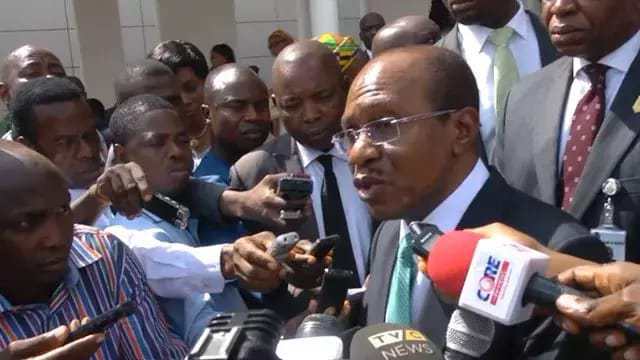There are no products in your shopping cart.
| 0 Items | £0.00 |

 NIGERIA'S foreign reserves have dropped by $1.64bn to $36.69bn over the last month as the continued impact of low crude oil prices has forced the government to keep dipping into its savings to fund its spending programmes.
NIGERIA'S foreign reserves have dropped by $1.64bn to $36.69bn over the last month as the continued impact of low crude oil prices has forced the government to keep dipping into its savings to fund its spending programmes.
According to figures just released by the Central Bank of Nigeria (CBN), the country’s foreign exchange reserves fell by $1.64bn from $38.34bn on January 15, to $36.69bn on February 20. According to the CBN, the reserves stood at $38.53bn on January 2, 2020 but have continued dropping since.
Nigeria's 2020 budget is predicated on the nation selling 2m barrels of crude oil at $60 a barrel with the price currently standing at just $53, the government is struggling to fund its spending plans. This means that it has to constantly dip into its reserve to meet its budgetary projections, especially as oil prices look set to dip further with the coronavirus depleting demand as Chinese industrial output falls.
Highlighting what has been a growing trend for a year now, the CBN revealed that Nigeria's reserves dropped from $39.8bn on November 11, 2019 to $39.24bn on December 13, after falling by $1.26bn from $41.76bn on October 2 to $40.5bn as of the end of October. These reserves dropped by $482.18m from N45.14bn as of July 8 to $44.65bn on August 8.
CBN governor Godwin Emefiele, recently said that Nigeria’s over-dependence on crude oil for over 60% of its fiscal revenue and over 90% of foreign exchange (forex) inflows, meant that shocks in the oil market were transmitted entirely to the economy. He added that this took place through the forex markets as manufacturers and traders who required forex for input purchases were faced with dwindling supplies.
Mr Emefiele said: “Average monthly inflows of forex into the CBN fell from over $3.4bn in June 2014 to a low of $1.4bn in September 2016. This decline in forex earnings was further complicated by the foreign capital flow reversals due to rising yields in the USA and the impact on our economy was evident in the rising pressure on the naira-dollar exchange rate.
“With the drop in forex inflows, the exchange rate at the parallel market rose from about N200/$ in August 2015 to N525/$ in February 2017 and inflation also rose from 9.6% in January 2016 to over 18.7% in January 2017. Our external reserves fell from about $31bn in April 2015 to $23bn in October 2016 and activities in the industrial sector witnessed a lull as manufacturers struggled to get access to key inputs needed in the production process.”
He added that the CBN introduced a demand management approach in order to conserve the country’s reserves and support domestic production of certain goods in Nigeria. According to Mr Emefiele, the impact of a tighter monetary policy regime, attractive yields in the money market and the bank’s efforts at supporting domestic production in the agriculture and manufacturing sectors, along with improvements in oil production, had supported continued forex inflows into the Nigerian market.